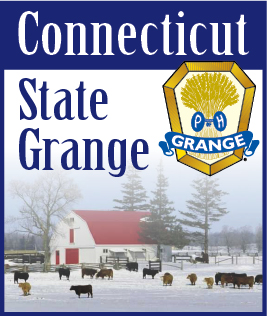| DECEMBER 2007 -- Since its earliest days, members of the Grange have been outspoken about transportation issues. In the nineteenth century roads to where rural Grange members lived and farmed were inadequate at best.
Today, the Grange’s interest in transportation issues remains and improvement of the nation’s roads, bridges, railroads and aviation are seen as critical to the future of the nation.
The interstate highways have evolved into the backbone of America’s road system. Grangers from some states have noticed that their interstate highway exit signs are numbered differently than those in other states and they discussed this at their national organization’s 141 st annual convention in Reno during the second week of November.
The numbering system in many states corresponds to the mile markers along the highway, a method Grangers felt made it easier for individuals driving on the highway to be able to identify where they are in the event of an emergency. The Grange delegates approved a resolution at their convention to support legislation that would standardize the practice of numbering highway exits to correspond with the mile markers on all interstate highways.
In a companion resolution, the Grangers came out in opposition to any tolls on any portion of the Interstate Highway System.
In recent years air travelers have had to adapt to heightened passenger screening at airports but the Grange delegates noted that while this screening is usually vigorous during heavy traffic hours, in some locations it is lax in the evening and at night. The Grange will petition the U.S. Department of Homeland Security to “scrutinize their passenger screening/security contractors to appropriately provide adequate safe airport screening/security during hours of operation.”
Delegates also put the National Grange on record as opposing legislation “authorizing the Federal Aviation Administration (FAA) to establish fees for air traffic control and related activities, services, facilities, and equipment that initially increases user fees and taxes for General Aviation (crop dusting, pipeline patrol, power line patrol, forest fire patrol, commuting to rural communities) or that turns all major commercial airlines into full partners with the FAA on matters of decision-making by creating a board dominated by airline representatives who would help the FAA establish user fee pricing schedules.”
Finally, the Grange recognizes that various pipeline systems are actually part of the nation’s complex transportation infrastructure. For decades there have been terminals where oil tankers offloaded their liquid cargo and there have seldom been safety problems with these. However, as domestic natural gas supplies dwindle and demand escalates, there have been proposals to site terminals at various locations to receive liquefied natural gas brought to this country in ships from overseas.
Such facilities pose many risks, the Grange feels, and convention delegates urge the Federal Energy Regulatory Commission along with the U.S. Coast Guard and other federal agencies to “develop and strengthen regulations regarding the siting of Liquefied Natural Gas terminals.” The Grangers also insisted that these regulations take into account the economic impact on a region where a terminal is proposed. |
